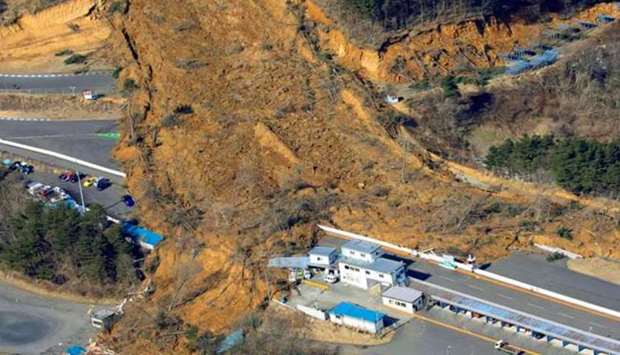More than 120 people were injured after a 7.3-magnitude earthquake struck northeastern Japan late last night, causing blackouts, water cuts and suspension of trains.
Earlier Sunday morning, Japanese Prime Minister Yoshihide Suga said that there was no risk of a tsunami, and the nuclear power plants had not reported any problems.
For its part, the Japan Meteorological Agency said that there is an increased risk of house collapses and landslides in the areas severely hit by the earthquake. People are advised to remain alert in anticipation of the possibility of aftershocks with a maximum strength of up to six plus next week or so.
Several earthquakes were coming from the waters off Fukushima Prefecture, occurred after the great earthquake that occurred last night. Officials called on people to remain alert in anticipation of the possibility of more aftershocks.
According to the Japan Meteorological Agency, the quake occurred at a depth of 60 km in the Pacific Ocean off the Fukushima region, close to the epicenter of the devastating 2011 earthquake that killed more than 18,000 people.
The agency initially stated that the earthquake had a magnitude of 7.1, but it corrected the figure to 7.3, noting that it was an aftershock of the 2011 earthquake.
Japan is located at the Pacific Ring of Fire, a region experiencing intense seismic activity that extends from Southeast Asia and encompasses the Pacific Basin.
In September 2018, a 6.6-magnitude earthquake shook the island of Hokkaido, causing landslides, collapsing homes and killing more than 40 people.

